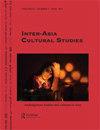谁把这座城市归档了?光化门广场的场所营造:政治权力与公民权力的权力斗争
IF 0.4
4区 社会学
Q4 ANTHROPOLOGY
引用次数: 0
摘要
摘要本文在“作为档案的城市”的框架下,调查了韩国首尔最近发生的地方制作过程——关于光化门广场功能和象征意义的争论。谁对一座城市进行档案管理的动态性质取决于哪些行为者在制定地方政策时掌握权力。反过来,将一座城市归档是一个充满活力的政治过程。为了了解光化门广场的参与者如何影响共同城市故事和记忆的可视化和形成,将考察光化门的三个重要发展阶段:1)建设一个记录政治野心和国家建设的历史遗址,以及3)作为政治领导人的野心与其公民的优先事项之间冲突的档案场所。通过分析再开发的三个阶段,可以清楚地看到权力是如何转移的,利益相关者的范围是如何扩大和变化的。它揭示了城市作为一个档案馆,以及在不同的政治背景下,不同的利益相关者如何(重新)收集、修改、检索和擦除公共空间。本文章由计算机程序翻译,如有差异,请以英文原文为准。
Who archives the city? place-making at Gwanghwamun square: power struggles between political authority and civil power
ABSTRACT Working within the framework of the “city-as-archive,” this article investigates recent place-making processes that have occurred in Seoul, South Korea—debates over the function and symbolism of Gwanghwamun Square. The nature of the dynamics in who archives a city is determined by which actors hold power in place-making. In turn, archiving a city is a vigorously political process. In order to understand how the actors of Gwanghwamun Square’s place-making affect the visualization and formation of shared city stories and memories, three significant stages of development at Gwangwmun Square will be examined: 1) the construction of a historical site that archives political ambition and nation-building, 2) the creation of an icon for global brand-building, and 3) as the archival site of conflicts between political leaders’ ambitions and their citizens’ priorities. By analyzing three phases of re-development, it becomes clear how power shifts, and how the scope of stakeholders expands and changes. It reveals the city as an archive, how a public space has been (re)collected, revised, retrieved, and erased by different stakeholders during different political contexts.
求助全文
通过发布文献求助,成功后即可免费获取论文全文。
去求助
来源期刊

Inter-Asia Cultural Studies
Multiple-
CiteScore
0.90
自引率
20.00%
发文量
22
期刊介绍:
The cultural question is among the most important yet difficult subjects facing inter-Asia today. Throughout the 20th century, worldwide competition over capital, colonial history, and the Cold War has jeopardized interactions among cultures. Globalization of technology, regionalization of economy and the end of the Cold War have opened up a unique opportunity for cultural exchanges to take place. In response to global cultural changes, cultural studies has emerged internationally as an energetic field of scholarship. Inter-Asia Cultural Studies gives a long overdue voice, throughout the global intellectual community, to those concerned with inter-Asia processes.
 求助内容:
求助内容: 应助结果提醒方式:
应助结果提醒方式:


